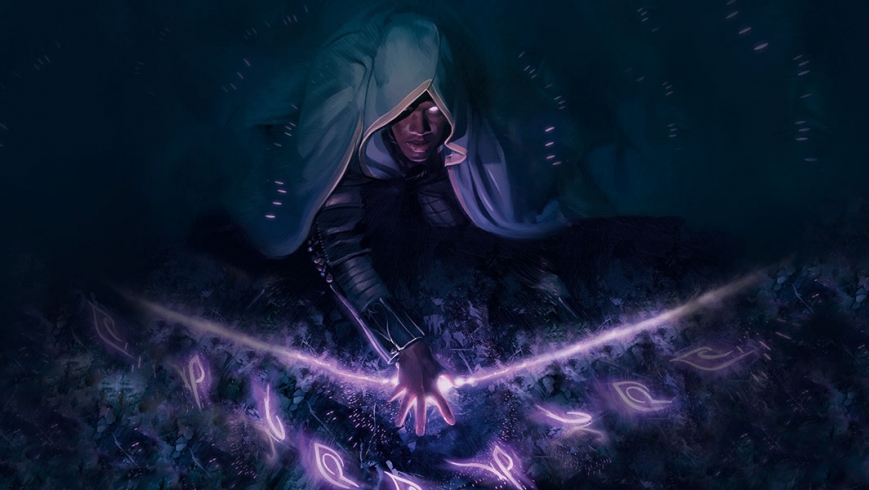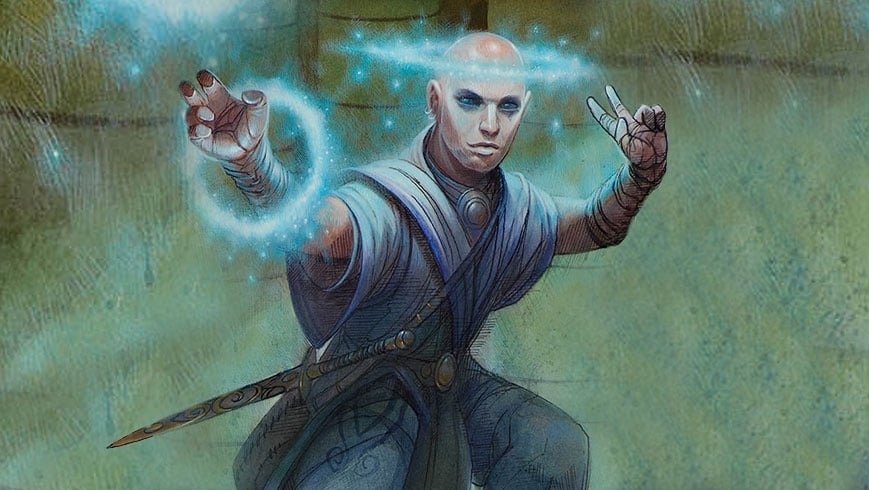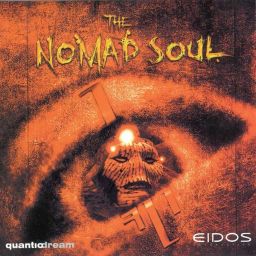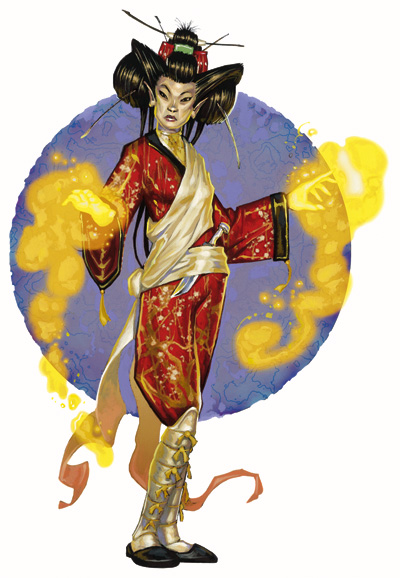D&D: Unearthed Arcana – The Mystic
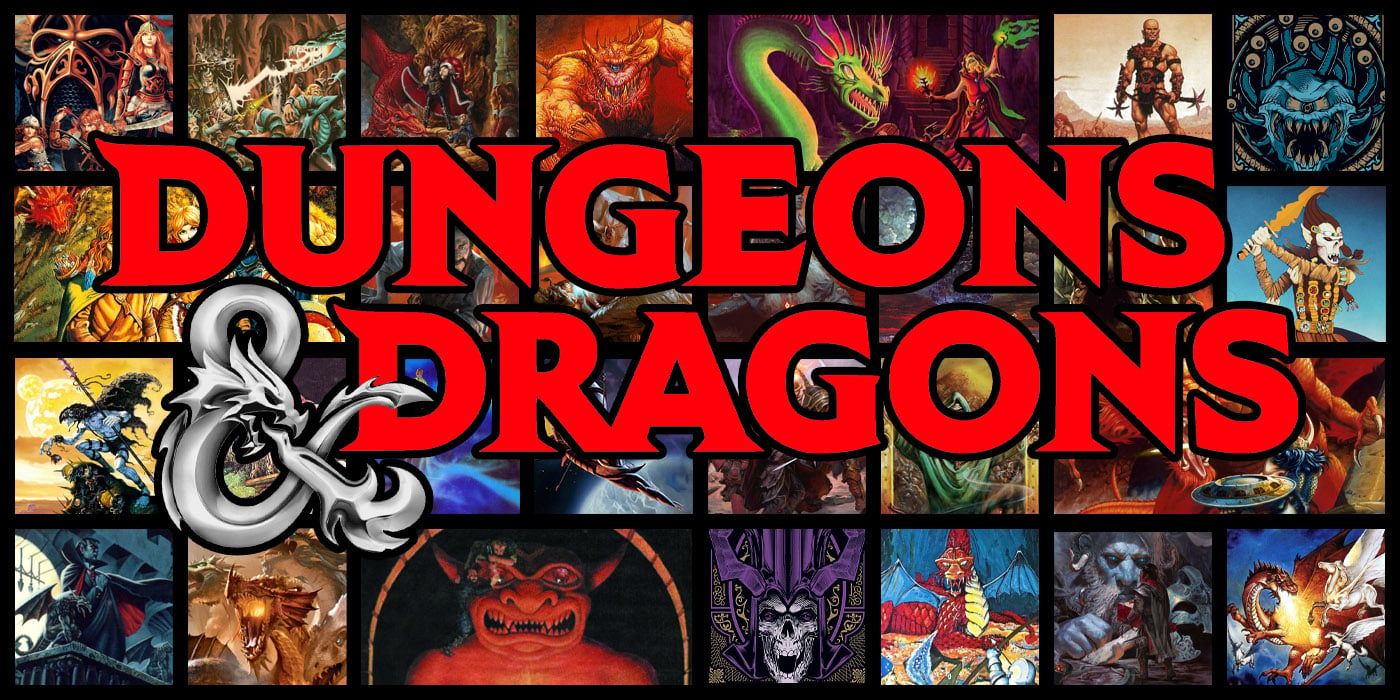
Three suns conjoin in the sky in this week’s Unearthed Arcana…
That’s right, it’s time to begin a great pilgrimage and leave the valley you’ve dwelt within for the last thousand years, hoping that your kind nature and a lone Gelfling will be enough to turn the tide of darkness and reunite a shattered world, because this week’s Unearthed Arcana is all about the Mystics.
Which is great, because I have long felt that the Dark Crystal would be a fantastic campaign set–oh. I see. Ahem. That’s right folks, it’s time to get your psionic crystals in order,* and cal Simon Baker because this week’s Unearthed Arcana is all about Mentalists…**
All jokes aside, this is pretty big news. Psionics is back in a big way. This week’s Unearthed Arcana showcases not only a new class (and one that’s been refined from previous feedback), but also the accompanying Psionics that power it. I am impressed–they could have just had a bunch of spells or had Psionics function similarly but slightly different from spells–and that would have been fine, but they manage to actually feel like a different system–while still managing to keep the streamlined state of affairs.
But enough about that–for now, let’s talk about the class. We’ll dig into the Psionics themselves in another article.
The Mystic
Mystics shun the world to turn their eyes inward, mastering the full potential of their minds and exploring their psyches before turning to face the world. Mystics are incredibly rare, and most prefer to keep the nature of their abilities secret. Using their inner, psychic strength, they can read minds, fade into invisibility, transform their bodies into living iron, and seize control of the physical world and bend it to their will.
Advertisement
And boy do they ever bend it to their will. So let’s dive in.
The Basics
To begin with, Mystics have a d8 hit dice, proficiency with light armor and simple weapons; Intelligence and Wisdom saves; and can choose two skills from the following: Arcana, History, Insight, Medicine, Nature, Perception, and Religion.
But whatever you choose, you’ll be sure to get more as each of the Mystic’s six different archetypes will grant you bonus proficiencies as you level up. More on that later.
Class Features
Psionics are the big class feature that Mystics get. They’re what define the class and how it interacts with the world, and in order to give them enough depth, we’ll be diving into those in another article. But for now, here’s a very brief overview: As a Mystic you gain access to a number of Psionic Disciplines. Your starting number is one–but really it’s actually 3, unless you’re playing a Soul Knife, because every other archetype grants you two bonus disciplines. The Soul Knife just grants you soul…knives. At any rate, each discipline gives you access to a Psychic Focus power (which is a sort of always-on buff you can swap around with an action, or can spend to achieve a cool effect 1/rest in some cases), as well as a number of other powers that let you more directly (and powerfully) influence the world by spending Psi points.
Here’s a handy tool for tracking your psi points…
Psi points are how you determine what powers you can activate, and how often, and to what degree. You get a sizable pool of Psi Points as you level up, and many of the archetypes have ways of replenishing them at least semi-reliably. But there’s also a limit to how many points you can spend on any given psionic discipline, which is how the game structures your character’s development. And even when you’ve run out of psionic points, there are still Psionic Talents, which are your cantrips, basically. You only get a scant number of them, though, so choose carefully.
But wait there’s more than just psionics!
At 2nd level you get Mystical Recovery which lets you recover hit points whenever you spend Psi Points. I think that a lot of people will be comparing the Mystic to something like the Warlock, but I think they have more in common with the Monk in that they’re a lot more durable than you’d think. They have pretty reliable ways of sustaining themselves through encounters, and can build themselves to be even more durable with their power selection.
You also get Telepathy which does what it says on the tin, and lets you speak with anyone. Always nice. And then at 4th level, you get Strength of Mind which lets you swap your Wisdom save for proficiency with a different attribute, so you can better prepare to face your fireball slinging foes with proficiency in Dex. See what I mean about resiliency?
Which is good, because at 9th level, with Consumptive Power, Mystics can 1/long rest spend their HP in place of Psi Points, but this reduces both your current and maximum hp, and can’t be negated in anyway until after you complete a long rest. Which is good–part of the fun of Mystics, I think, is in balancing the choice of how do I use my Psi Points, and if you could always just use your HP it would be taking away any kind of pressure or challenge in running the class.
Potent Psionics is the pseudo-multiattack option that Mystics get. They can add an extra d8 of psychic damage once a turn to any creature they’ve hit with a melee attack (2d8 at 14th).
And anyway, starting at 11th level, Psionic Mastery gives you a (much) smaller pool of bonus points that you can use only on disciplines that require an action or bonus action to activate. What’s really cool though is that you can explicitly use these points to maintain concentration on multiple powers at once (so you can give yourself elemental immunity and flight, for instance) but you can only do that in limited bursts. I’m less sure about this one (see above), but it feels like they’re wanting to encourage players to use the buffing powers–and this is a good way to let the player feel like they can do that instead of just blasting people all the time.
I mean, I’ll probably shoot everyone with mind bullets all the time anyway, but still.
I mean how else are you going to kill a yak from 200 yards away…
The capstone power, Psionic Body is bananananas. You gain flat out resistance to physical damage (bludgeoning, piercing, and slashing) whether it’s from a magic weapon or no. You also DON’T DIE because you stop aging, become immune to poison and disease, and also if you die, there’s a 50% chance that you instead just discorporate and reform within 1d3 days. For the record, that’s a much better deal than what Liches get.
Mystic Orders
So the different Mystic archetypes all fall under the auspices of Mystic Orders. There are six different ones all in all: The Orders of the Avatar, Awakened, Immortal, Nomad, Soul Knife, and Wu Jen. Deep breath guys, this is the home stretch for this article. I believe in you.
Order of the Avatar
These guys are all about mastering emotions within themselves and others. They are the most leadery of the Mystics. They are a little tougher, in that they gain proficiency with medium armor and shields, and their big feature is the ability to bolster their allies with a number of helpful auras which do things like grant all allies within 30 feet a bonus to their initiative rolls. Or that heal your allies anytime you regain hit points from a Psionic Discipline, or the capstone to this Archetype–letting your allies Dash as a bonus action.
Order of the Awakened
The Order of the Awakened is all about Mind over Matter. They are talented at ferreting out hidden knowledge and overwhelming their opponents with their psychic mastery. Pick this Order if you want to use your psionic powers to spy on people. They’re the ones who get psychometry–and with a neat twist, they can gain the ability to plant a psychic sensor in an object and for the next 24 hours can basically see everything within it. I really like this power–I can already see all kinds of weird shenanigans you can get up to from it. But while this is fun, the real meat and potatoes of this class is the 6th level ability to give up your psychic focus to impose disadvantage on an enemy’s saves vs. your disciplines.
Order of the Immortal
These guys are the most enduring of the enduring Mystics. They are all about modifying their body and making themselves either into weapons or harder to kill. The class is centered around being resilient (or Immortal), with things like the ability to as a reaction halve any damage you take (at the cost of your focus), or to give yourself natural armor (Dex + Con modifiers), or the workhorse talent here–the ability to gain temporary hit points equal to your Int Modifier at the start of every turn as long as you have 1 hp. Combine that with damage reduction disciplines, and the Immortal’s capstone ability to spend Psi Points for HP and it gets very hard to make you even take lasting HP damage in the first place.
Order of the Nomad
These guys are all about seeking out hidden lore, wanting to accumulate and cross-index as much knowledge as possible. To them, knowing is being. I really like this archetype–it lets you adapt to any situation pretty well. You can do things like gain two floating “proficiencies” that you pick at the beginning of each day, these can be tools, skills, or languages. Perfect for any character that wants to just know something. And as the name suggests Nomads are all about travelling (after all that’s how they find the knowledge), so they gain the ability to teleport–at 3rd level they can do it defensively, letting them use their reaction to recall themselves to a square they’ve previously moved through, Tracer style. At 6th they can teleport 10 feet further each time they teleport, and at 14th, they can just forfeit normal movement to teleport instead.
Order of the Soul Knife
The one that everyone’s been waiting for. Well. The one I have been wanting to see–this is for all you Gishes out there. Instead of gaining extra disciplines, you gain the ability to manifest two psychic knives. They are martial melee weapons, (meaning they benefit from the psychic damage boost of potent psionics), which possess both the Light and Finesse properties. If you listen carefully, you can hear players crafting their own rogue/mystic multiclass builds now. They can also spend psi points to enhance their attacks, and can use a bonus action to give themselves a +2 to AC, and eventually can regain psi points when they deal damage with the knives. The capstone power lets you make one attack with your soul knife that counts your foe as AC 10. So. You know. You’re going to hit. This ability seems really strong–I’m a little confused as to whether you only get one or two weapons. The blades are referred to plurally, but that might just be me hoping that you get to two-weapon fight with them.
Either way, this archetype seems like it could handle itself pretty well.
Order of the Wu Jen
These guys put the Mentalist in Elementalist. Essentially they are all about controlling the forces of nature with their minds. They can do things like spend a point to ignore resistances on a psychic power (while remaining within the limit that they can spend), or spend 2 psi points to reflexively gain immunity to elemental damage instead of taking it. But the big ability here is that they also gain three wizard spells that they always have prepared, and gain the ability to spend psi points to create a spell slot they can use to cast one of their three spells (or any other spells they happen to know). So good news for all of you wanting to multiclass into a spellcasting class.
All in all, these are some pretty strong options. I don’t feel like any one stands out as better, just as more appealing to me (because I love soul knives). I feel like the Mystic is in a relatively polished place by now, and from what I can tell it looks like the feedback they’ve received from the community has really helped shape this class into what you see today. So please, click on that survey at the bottom and let them know what you think!
Check out the Mystic
Take the Traps Survey
How do you feel about Psionics being added to D&D? What’s your take on the Mystic? Let us know below!
*(much better –ed.)
**(that’s not…you know what, it’s fine. Carry on, –ed.)



